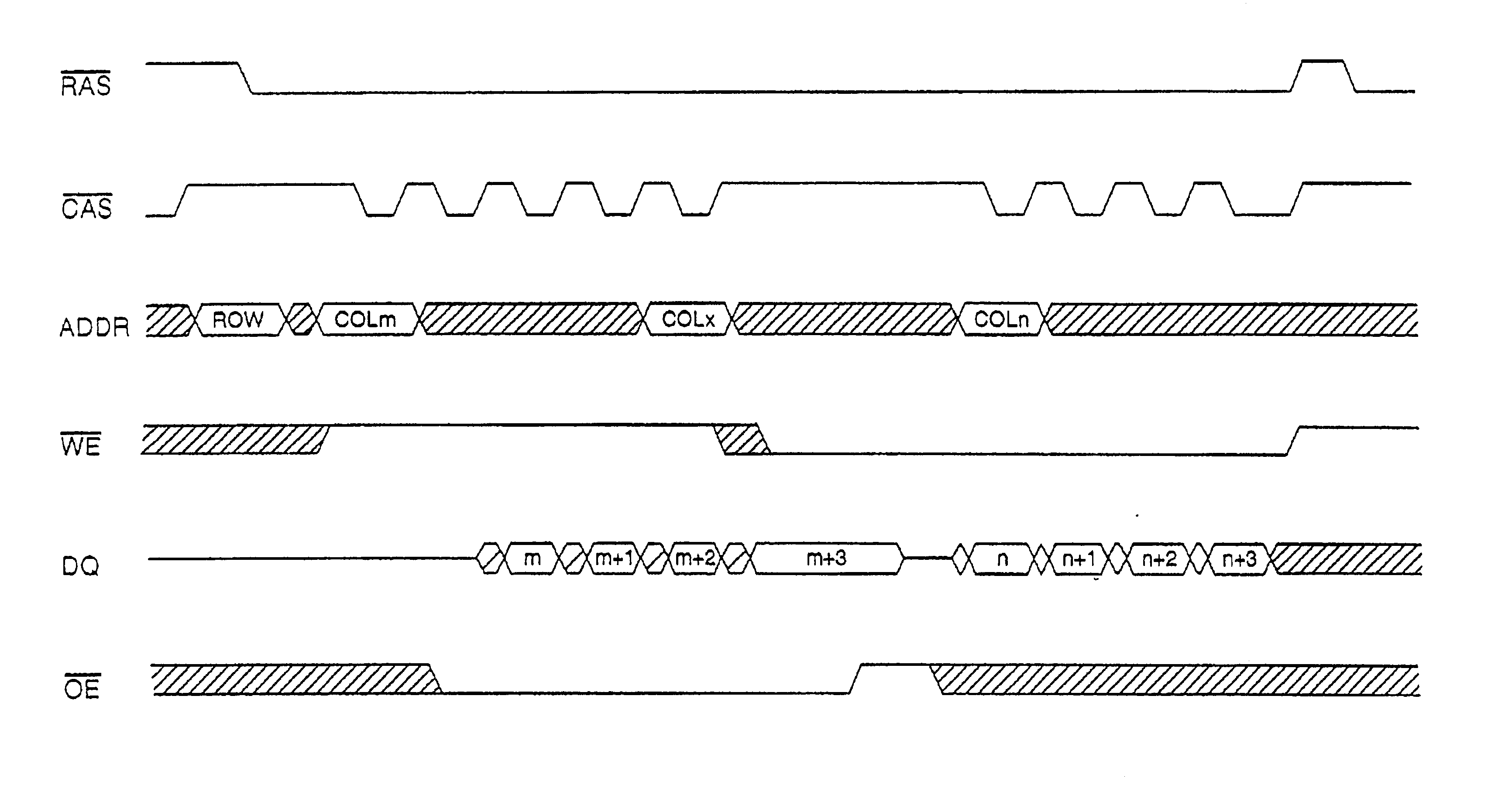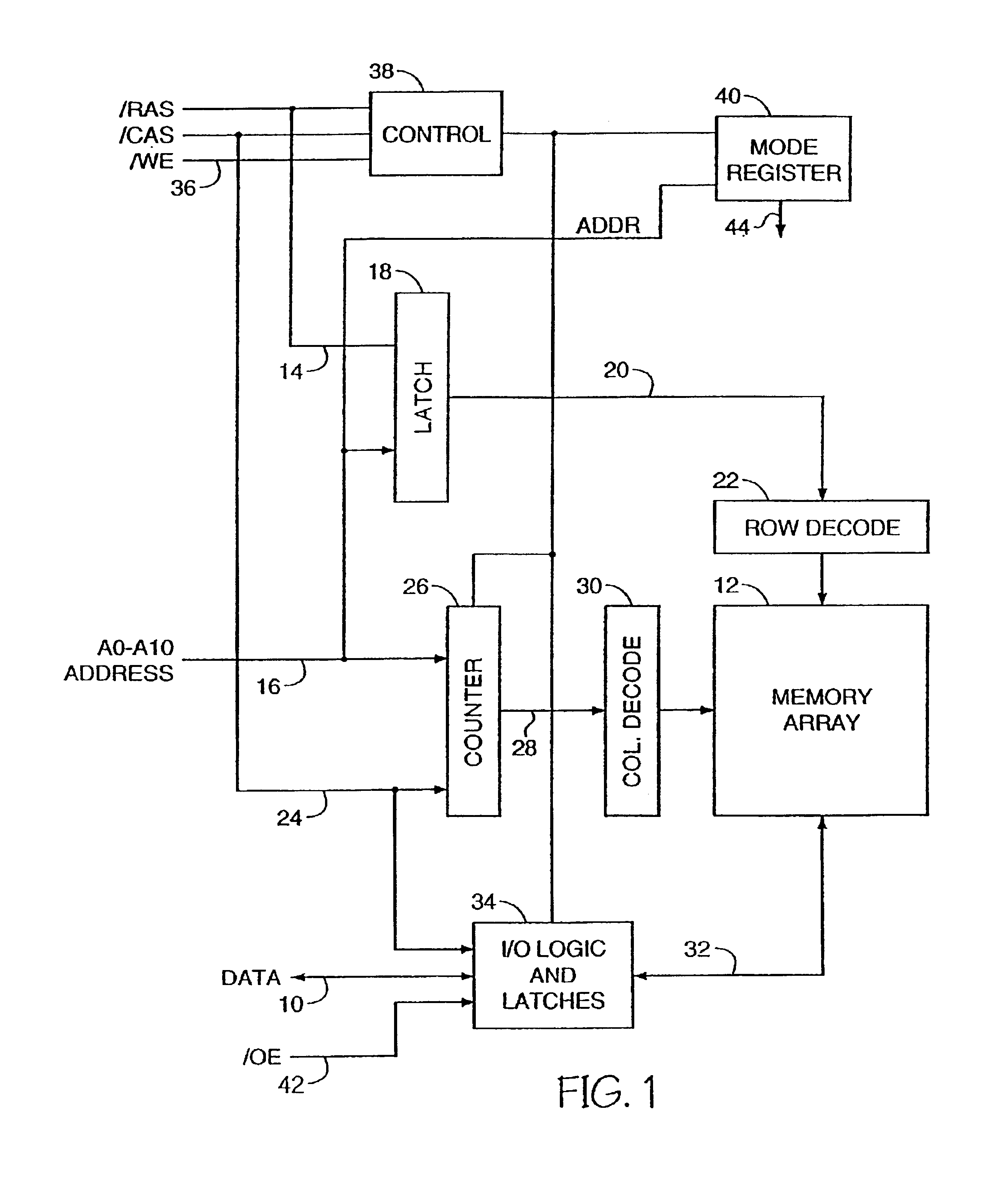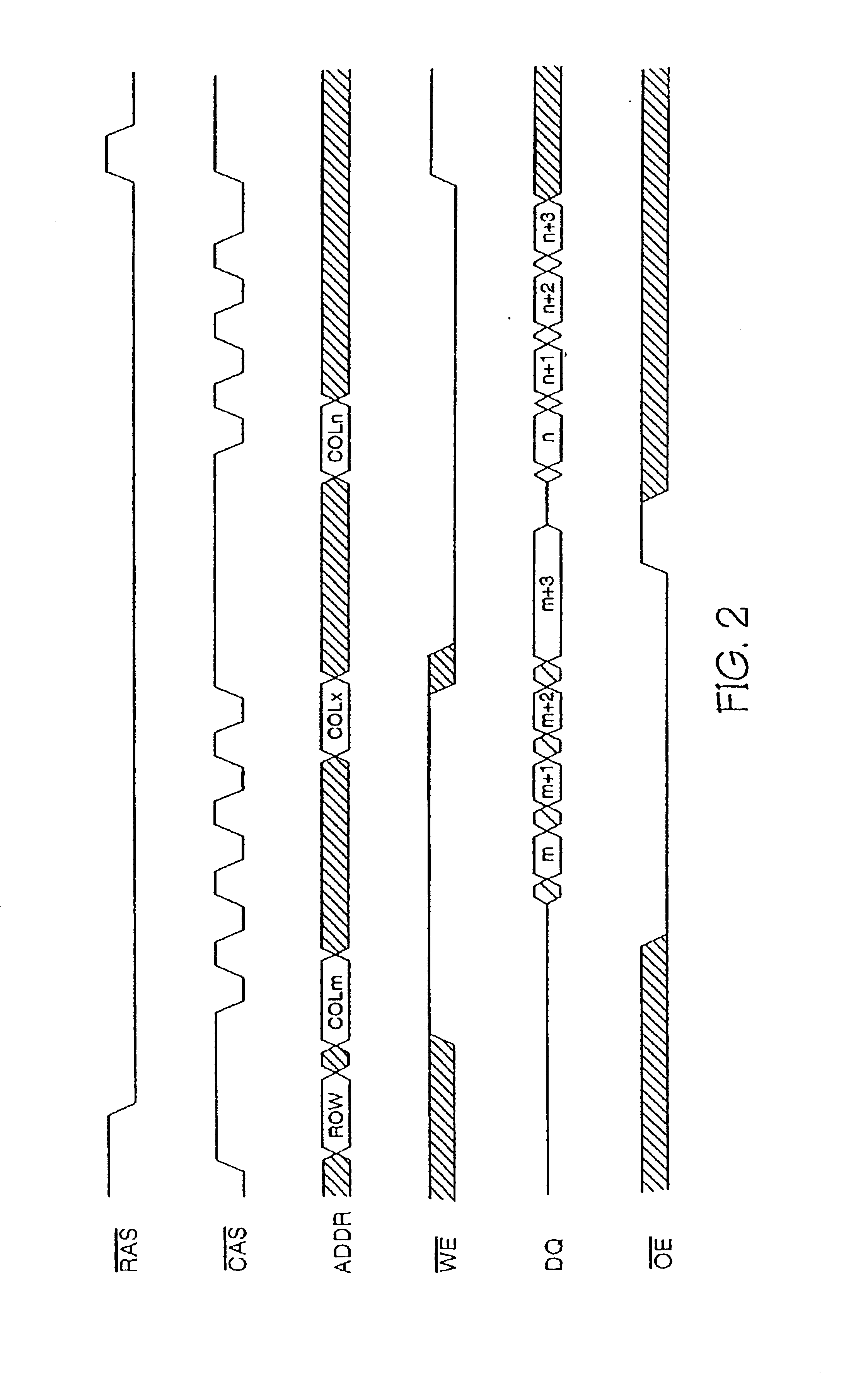Distributed write data drivers for burst access memories
a write data and driver technology, applied in the direction of memory adressing/allocation/relocation, digital storage, instruments, etc., can solve the problems of increasing the manufacturing cost of the device, the inability to efficiently distribute write data, and the inability to shorten the memory access cycle. achieve the effect of high speed data access, maximized write cycle timing, and high speed
- Summary
- Abstract
- Description
- Claims
- Application Information
AI Technical Summary
Benefits of technology
Problems solved by technology
Method used
Image
Examples
Embodiment Construction
[0020]FIG. 1 is a schematic representation of a sixteen megabit device designed in accordance with the present invention. The device is organized as a 2 Meg×8 burst EDO DRAM having an eight bit data input / output path 10 providing data storage for 2,097,152 bytes of information in the memory array 12. The device of FIG. 1 has an industry standard pinout for eight bit wide EDO DRAMs. An active-low row address strobe ( / RAS) signal 14 is used to latch a first portion of a multiplexed memory address, from address inputs A0 through A1016, in latch 18. The latched row address 20 is decoded in row decoder 22. The decoded row address is used to select a row of the memory array 12. A column address strobe ( / CAS) signal 24 is used to latch a second portion of a memory address from address inputs 16 into column address counter 26. The latched column address 28 is decoded in column address decoder 30. The decoded column address is used to select a column of the memory array 12.
[0021]In a burst r...
PUM
 Login to View More
Login to View More Abstract
Description
Claims
Application Information
 Login to View More
Login to View More - R&D
- Intellectual Property
- Life Sciences
- Materials
- Tech Scout
- Unparalleled Data Quality
- Higher Quality Content
- 60% Fewer Hallucinations
Browse by: Latest US Patents, China's latest patents, Technical Efficacy Thesaurus, Application Domain, Technology Topic, Popular Technical Reports.
© 2025 PatSnap. All rights reserved.Legal|Privacy policy|Modern Slavery Act Transparency Statement|Sitemap|About US| Contact US: help@patsnap.com



